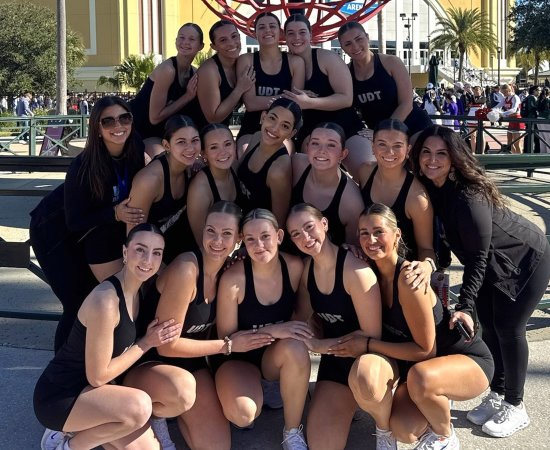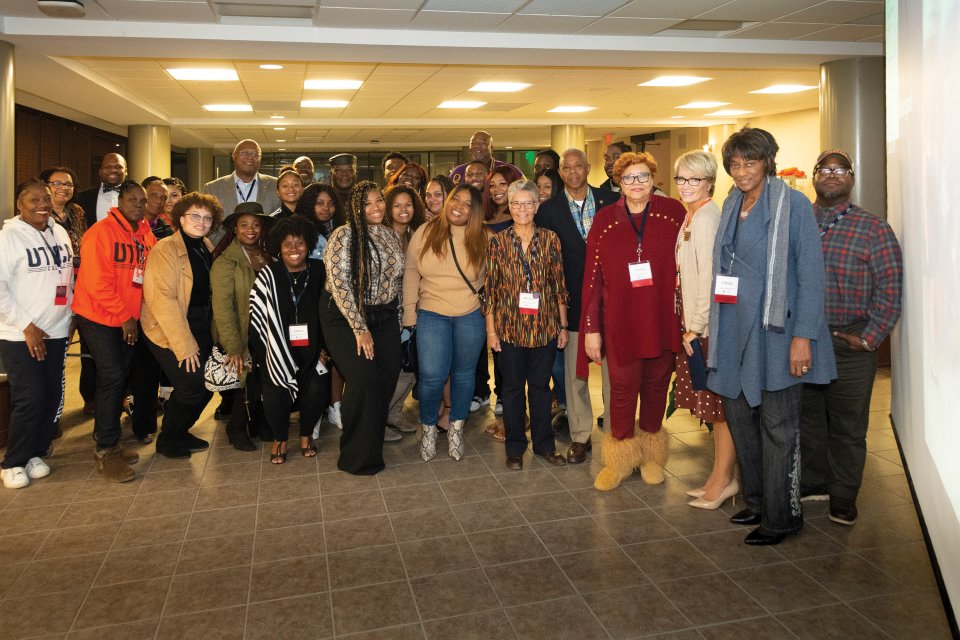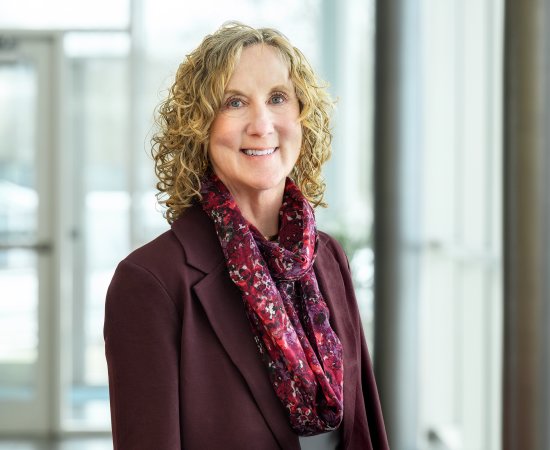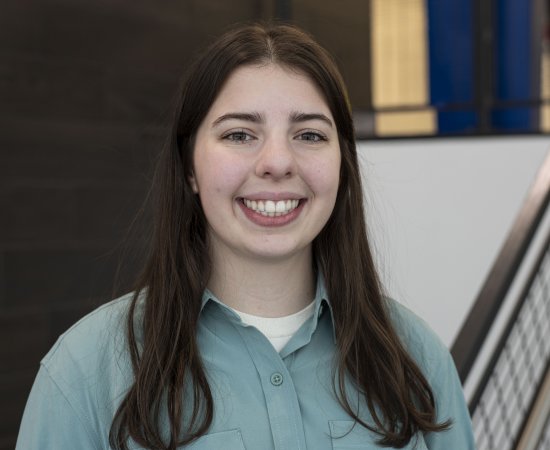
Pride and Power

The Black Student Union Celebrates 50 Years at Utica College
In the fall of 1966, a group of 20 black students came together to form United Students at Utica College. Its mission: “to inform both black and white students of the Negro in this society and, hopefully, promote more humanitarian attitudes toward the Negro in America.”
Over the course of two years, the group grew and became more visible on campus while developing a progressive list of demands: install a lecture series for prominent black speakers, create courses on black history and achievement, establish a black cultural center on campus, and make a more concerted effort to recruit minority students, to name a few.
“During the past three years, several black students have left Utica College because the educational system has been grossly delinquent in responding to the modern needs of the minority students,” their proposal began.
While some of the demands were met, others had been ignored by college administration, prompting six students representing the newly named Black Students Union to stage a historic sit-in in a campus computer lab. Because of their efforts, an agreement was finally reached with then-president Dr. J. Kenneth Donahue.
That was May 1969.
Now, 50 years later, the Utica College Black Student Union is one of the most visible and most active organizations on campus. Since 1969, its members have gone on to achieve personal and career success, and many of them returned to UC in October to celebrate the milestone during homecoming weekend.
We spoke with four former BSU presidents to learn how their experience in the organization has impacted their lives—and is impacting them still.
Jonathan Adewumi ’86
"I joined the BSU as a freshman in 1981. I was elected president in 1983 and served for two terms. At the time, the biggest issue for minority students at UC was that our organizations were not funded on par with the white organizations. The BSU was an umbrella organization that was comprised of students in black fraternities and sororities, black student athletes, the gospel choir and the rest of the black student population. The Black Student Union provided us with a vehicle to discuss issues that affected us as students on the campus and to proffer solutions. We conducted fundraising programs to meet budget shortfalls, and it also allowed us to have a united voice on the campus.
There were many memorable events from my time with the BSU, from sit-ins in Strebel protesting a cut in minority programming on WPNR, holiday parties in the BSU room, to fundraising events. It was an amazing time. Dear to me, though, was going to area prisons with the gospel choir to minister to the incarcerated.
Being president of the BSU made me sensitive to the needs of my peers and the struggle each person was going through to meet their goals. That experience helped later in life when I was chairman of a 250-member Black Merchants Association. The ability to listen to my members’ needs and develop solutions to individual and community problems had its roots at Utica College. Even now, I carry those lessons as president of a non-profit organization for Nigerian descendants living in the United States, Europe, and Canada that tries to alleviate the economic and educational challenges of our people back in Nigeria.
Today, I live in Brooklyn, New York, and have been an entrepreneur most of my adult life. I've had the opportunity to partner with my brothers to own a clothing manufacturing company, Nigerian Fabrics and Fashions, a computer magazine PC World Africa, and most recently Amarachi Restaurant. I'm a single parent of an amazing 24-year-old son who is currently enrolled in an MBA program at Montclair State University."
Anthony Baird ’91
"I was involved as a BSU member from 1987-89, and in the spring of 1989, I was encouraged to run for president. I was elected and served as president until my graduation in 1991.
When I first arrived at UC in the late 1980s, I thought the campus was pretty cool. I felt like I was getting along with the people, and I didn't think there was more to campus life than just trying to adjust as a new student. But as I paid attention to the kinds of activities and programs that were being organized and delivered to the community by the BSU, I learned quickly that the role of the BSU president was to get students of color acclimated to life on a predominantly white college campus. For black students, we helped create a community of people that look like you, identify with you, and share common experiences with you; to me, that was one of the ways to survive on campus.
As president of the Black Student Union, I was responsible for changing the tenor by getting more students of color involved on campus, fostering more diversity, working with the administration, and working with black alumni to be more engaged with UC.
However, when the BSU received letters from some racist people who threatened our lives, our safety, and our well being on campus, it prompted a radical move for the BSU to be better organized and to create change on the campus. We demanded more inclusion and tolerance for people of color, black people, and people of the African diaspora (African, Hispanic-Latino, African-American, Asian, and Native American). I believe that moment left an indelible mark in my mind and in my heart around issues of leadership, diversity, inclusion, mentorship, persistence and determination.
I have since gone on to serve over 26 years in higher education administration, and I believe that career path was a result of the work I did while I was a UC student and leader of the BSU. Because of the relationships I forged with my peers, faculty, and administrators during a time of crisis, I felt empowered, emboldened, and capable of making a greater impact on any college campus I were to step on. I went on to earn terminal degrees in the field of higher education leadership.
I am currently retired from the University of Massachusetts Dartmouth. I have two adult children; my son has a bachelor's degree in mechanical engineering and is currently working for General Dynamics Electric Boat in Connecticut, and my daughter has her master's degree from the New School in Manhattan. She's building her career in management.
I have been busy expanding my educational, personal, and professional coaching enterprise. I am building a career and professional readiness curriculum online platform in hopes to distribute throughout the nation and the world.
I am also working on a book, and the central theme is that your success is always under construction, that you are the architect of said success and that you must build a strong education, personal, and professional foundation, so you can leverage your talents, abilities, gifts, and skills to help solve problems. It is a message to college-age students and new entrants in to the workforce who are trying to figure out how to make sense of who they are in relation to what they want to do for a career and a servant leader."
Patricia Gortman ’17
"When I’m became the president of the BSU in 2015, I didn’t have a blueprint. I had never run an organization before. At the first meeting, there were about six students. That’s when it hit me: This is my culture, and this isn’t something I can let die out. It was important that our voices were heard and our culture was respected every single day on campus, with every event, forum, and meeting. Through perseverance and the help of a few dedicated members, we ended up with 27 members the next year.
The lessons I’ve learned from my time in the BSU are priceless. From dealing with events, detailed planning, agendas, and getting the student body interested in what you have to say, to the parties, and chill nights, I’ve gained a lot of experience with staying calm in stressful situations.
I thought I was working on myself by finding my voice in a place where most of the people around me don’t look like me, but it turns out it was just practice for life.
I am happy to say I’ve found community, friendship, confidence, public speaking skills and my voice through the BSU. I’m proud to mentor and witness the next generation of BSU, as well.
I am originally from Harlem, New York, but I currently live in Utica working in financial aid at Mohawk Valley Community College. From the organizational skills to the communication skills, I’ve applied all of the lessons I learned as president of BSU in my professional and day-to-day life."
Alexia Colacicco ‘19
"I had several goals for the BSU when I became president in 2018. I wanted for us to have fun, educate those around us, stand up for what we believe in, and for others to gain knowledge and/or perspective through our events on campus. On a more personal level, I wanted the BSU to be a safe place for students of color to talk about racial tension and injustices that happen on our campus and the real world. Overall, I want BSU members to be educational and social contributors to campus, but also a family for those who decide to be a part of it.
We had a great Black History Month in 2019 with many educational and social events (16 of them, almost one event every day), and ended it with one of our annual events, “Amateur Night at the Apollo.”
Honestly, I saw my greatest accomplishments as president in my members. When I saw my members growing, learning things, becoming more active, hosting events, contributing event ideas, it made me feel good. I like seeing people get out of their comfort zone, do things they usually wouldn’t do, or just contribute to an event or something they’re passionate about. BSU wouldn’t be as successful without the contributions the members provide.
I’m not worried about the future of BSU. I think BSU has always had strong minded and determined people involved. We’ve been doing it for 50 years! Also, BSU will always be necessary. Especially in a predominately white institution, where people may not have the same perspectives on things, or may not even know another point of view on the situation."
More Stories


Meet the New Provost: Dr. Ann Damiano

Keep Looking Up: Sydney Kinsella ’26
I would like to see logins and resources for:
For a general list of frequently used logins, you can also visit our logins page.
